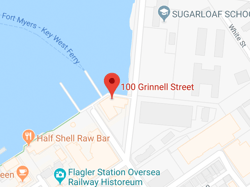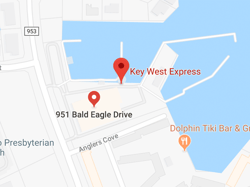The Key West National Wildlife Refuge is a 10,670-acre refuge located just off the western coast of Key West, out to the Marquesas Keys. It is home to a diverse range of wildlife, including sea turtles, shorebirds, wading birds, and mammals. The refuge also protects important habitats, such as mangrove forests and seagrass beds.
Photo Credit: Herpetological Conservation and Biology
The Key West Wildlife Refuge was established in 1908, by President Teddy Roosevelt to protect the nesting beaches of the loggerhead sea turtle. Loggerheads are the most common sea turtle species in the Florida Keys, and they nest on the beaches of the refuge from May to October. The refuge also provides important foraging habitat for sea turtles, as they feed on crabs, shrimp, and other invertebrates that live in the mangrove forests and seagrass beds.
In addition to sea turtles, the Key West Wildlife Refuge is also home to a variety of shorebirds and wading birds. These birds find food and shelter in the mangrove forests and seagrass beds. Some of the species that can be seen at the refuge include egrets, herons, spoonbills, pelicans, and flamingos.
The Key West Wildlife Refuge is also home to a variety of mammals, including Florida manatees, dolphins, and deer. The manatees and dolphins are found in the shallow waters of the refuge. The deer live in the mangrove forests and grasslands.
The Key West Wildlife Refuge is a vital part of the Florida Keys ecosystem. It provides important habitat for a variety of wildlife and helps to protect these species from threats such as habitat loss and pollution. The refuge also offers visitors a unique opportunity to see and learn about the natural beauty of the Florida Keys.
.jpg?width=400&height=300&name=Key_West_NWR_and_native_plants_(5147960261).jpg) Photo Credit: Wikipedia Commons
Photo Credit: Wikipedia Commons
How to Visit the Key West Wildlife Refuge
The Key West Wildlife Refuge is open to the public from 7am to sunset daily. There are several hiking trails and boardwalks that allow visitors to explore the refuge. The refuge also offers a variety of educational programs and events throughout the year.
How to Help Protect the Key West Wildlife Refuge
There are many ways that you can help protect the Key West Wildlife Refuge. Here are a few ideas:
- Visit the refuge and learn about the wildlife that lives there.
- Stay on designated trails and boardwalks to avoid disturbing the wildlife.
- Pick up litter and dispose of it properly.
- Report any illegal activities to the refuge staff.
- Support organizations that are working to protect the Florida Keys ecosystem.
By taking these simple steps, you can help to ensure that the Key West Wildlife Refuge continues to thrive for generations to come.
Here are some additional resources for learning more about the Key West Wildlife Refuge:
- Key West National Wildlife Refuge website
- Florida Keys National Marine Sanctuary website
- Key West Wildlife Center website
We hope this has helped you to learn more about the Key West Wildlife Refuge. When you're ready to head out and visit Key West, just give us a "click" and make those reservations on the Key West Express.
Hero Image Credit: Fish & Wildlife Services





